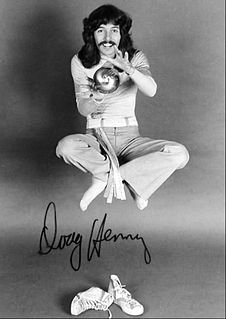A Quote by James Lovelock
Related Quotes
My poems always begin with a metaphor, but my way into the metaphor may be a word, an image, even a sound. And I rarely know the nature of the metaphor when I begin to write, but there is an attentiveness that a writer develops, a sudden alertness that is much like the feel of a fish brushing against a hook.
There's no question that how Johannesburg operates is what made me interested in the idea of wealth discrepancy. 'Elysium' could be a metaphor for just Jo'burg, but it's also a metaphor for the Third World and the First World. And in science fiction, separation of wealth is a really interesting idea to mess with.
Most songwriters who have been lucky enough to have their song on the radio or be heard widely don't know anything about science. The best songs have a strong dose of metaphor. Most songs about science don't have that. Like 'She Blinded Me With Science.' It's a stupid song, no offense to Thomas Dolby.
The facts of nature are what they are, but we can only view them through the spectacles of our mind. Our mind works largely by metaphor and comparison, not always (or often) by relentless logic. When we are caught in conceptual traps, the best exit is often a change in metaphor not because the new guideline will be truer to nature (for neither the old nor the new metaphor lies "out there" in the woods), but because we need a shift to more fruitful perspectives, and metaphor is often the best agent of conceptual transition.
The Genealogical Science is a wonderful account of how old-fashioned race science has come to be re-defined by resort to the most recent developments in genetics. But this book is not simply another story of the ideological uses to which science may be put. Nadia Abu El-Haj has provided the reader with a very detailed analysis of the historical entanglement between science and politics. Her study should be required reading for anyone interested in the sociology of science-and also for those dealing with Middle Eastern nationalisms. This is a work of outstanding value for scholarship.



































